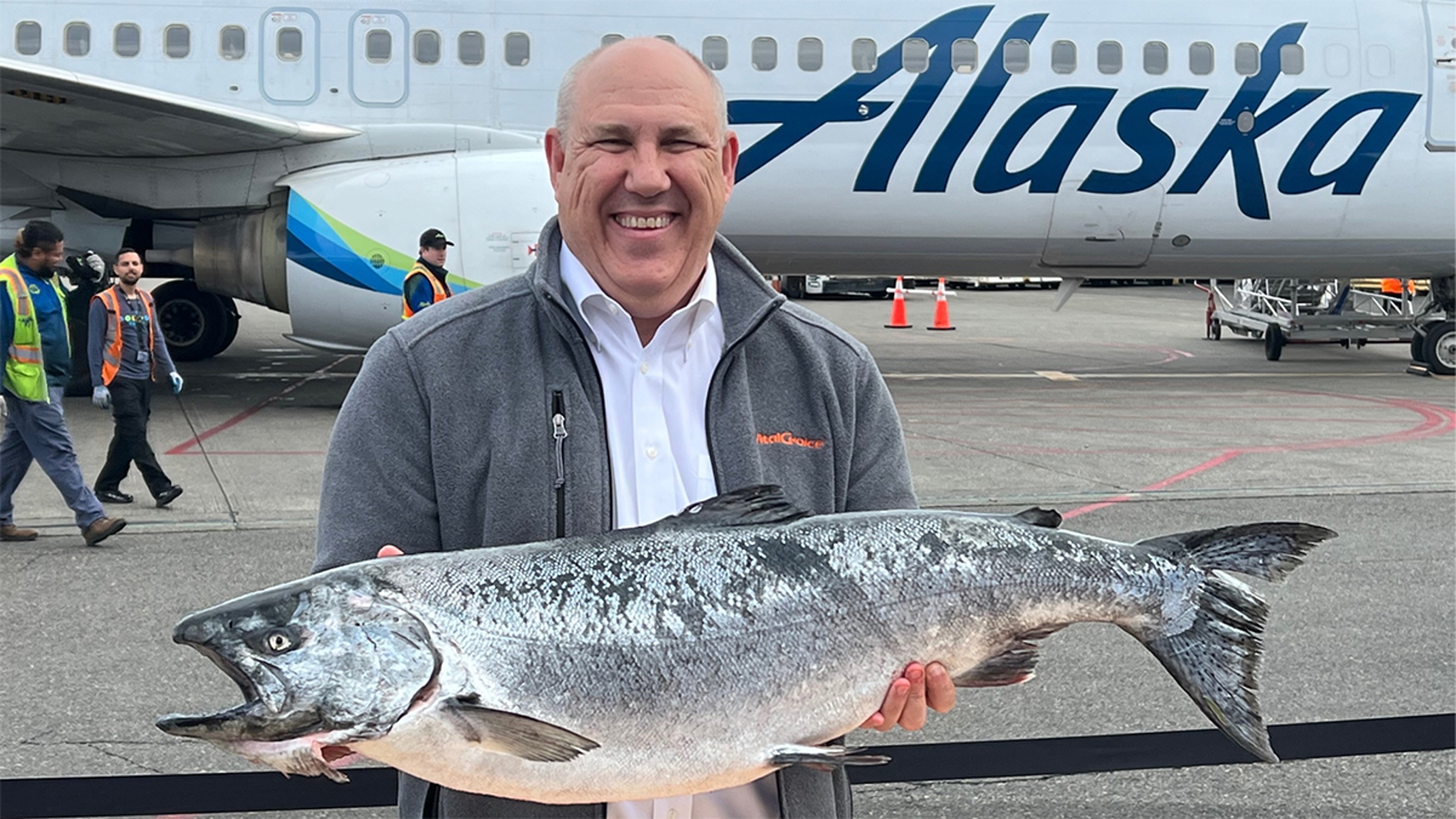Talkin’ Fish With Vital Choice Co-Founder Dave Hamburg
A candid conversation about starting a company, the right way to cook fish, and why salmon runs are so exhilarating.
Jan 16, 2024
Dave Hamburg was a commercial fisherman in Alaska for 40 years. That led to him co-founding Vital Choice in 2001. When it came to running the company, the two men had the philosophy of "We're just gonna do the right thing." The main aspects to their mantra were simple, Hamburg says: "Sell fish that is going to be really valued and treat people the way we want to be treated."
"It sounds kind of corny, but it's funny how it worked," Hamburg says. That corniness has proved fruitful, as Hamburg (Hartnell has since retired) still works with some of the same suppliers they did when they first started Vital Choice. They also have been fair with their customers, with whom they have "tried to be as open about where their fish is coming from." And the customers recognized Vital Choice's efforts, Hamburg points out. "They've been loyal and and have really been advocates for us — word of mouth is our biggest way of growing.
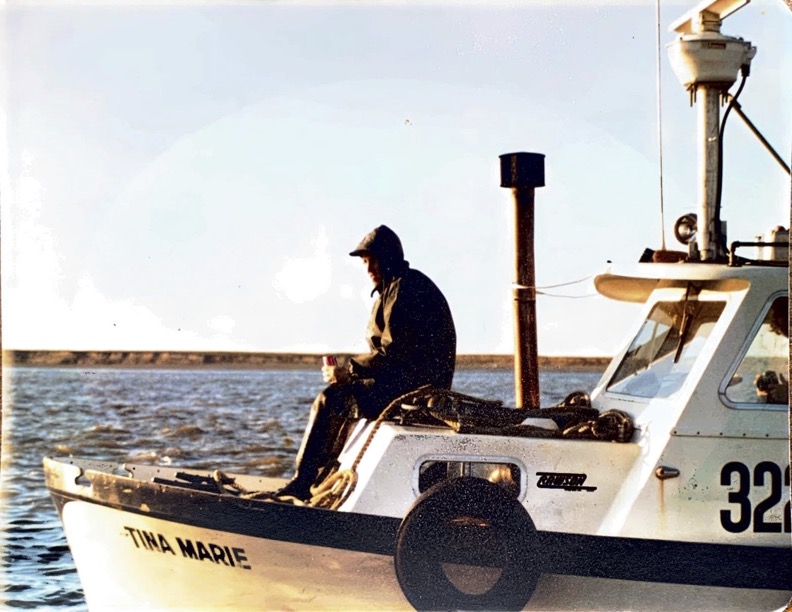
"That ethos of just having a great product and trying to make the whole thing as simple as possible has paid off, and that's made it really fun."
We talked with Hamburg, 60, about the company, fish, living in Alaska, and much more.
What was it like starting a company like Vital Choice?
Dave Hamburg: Well, take a small business and think of every possible thing that you would have to figure out. I didn't know accounting, purchasing, legal. As time went by, we hired people that had specific skills. Then it was more about managing people and focusing on the key functions and the progression on that over time. Now, my role is more of a leadership one where it's "Hey, we need to find the right team, the right people to look over the horizon for what are the next trends."
What changes have you seen in the fish and seafood industry, including in the customers?
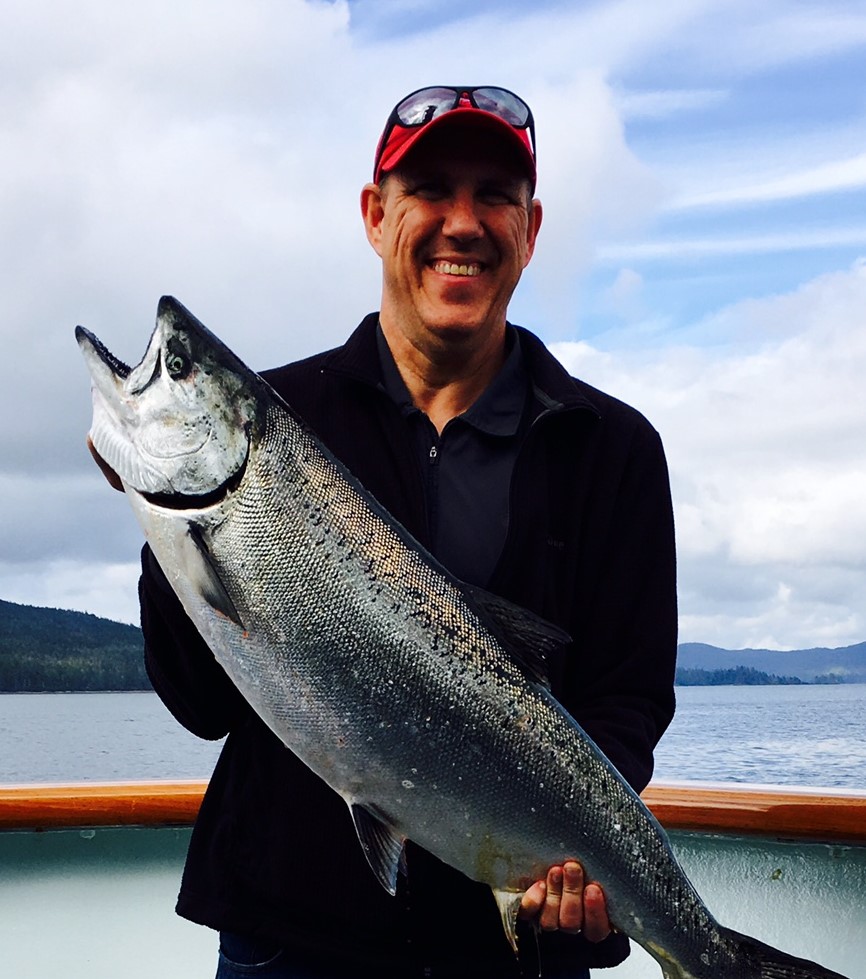
The sentiments around our initial customer base have become more mainstream now: the focus on sustainability, omega-3s, the health aspects of eating seafood — in particular salmon. When we first started, most of the bigger seafood companies were like, "What are you talking about? Don't you know that your costs are going to be higher?"
Now, many of the things we said then are being said by virtually everyone in the seafood industry.
There's been a shift toward people caring about where their food comes from and the sustainability of the oceans that maybe wasn't as recognized 20 years ago. It's become even more important with younger consumers. They're more concerned about if there is credibility in this brand.
Most of the fish Vital Choice sells comes from the Pacific Ocean, specifically near Alaska. What is it about that area that makes it a great place to source fish?
The quality of the fish is fantastic. One thing about Alaska is that it has some really robust salmon runs and other fisheries. The Alaska state constitution literally has in it that the fisheries must be managed responsibly. There are no red flags in any aspect of the supply chain. The biologists say exactly what should happen in Alaska: when you can fish, how much you can fish. It's just part of the DNA of how Alaska operates.
What is your favorite type of fish to eat?
Salmon. There's no doubt about that. I really like sockeye salmon. I probably eat equal amounts of that and king salmon. They're a little different, but they're both great fish. I also like a cold-water fish like the Chilean sea bass — that's all the way down near Antarctica. And haddock from the Atlantic is great as well.
What are the differences between wild-caught and farm-raised salmon?
Farm salmon, in my opinion, has a very different taste — give me a plate of wild salmon any time.
Salmon farming has a lot of benefits, and most of those are commercial benefits to the owners of the large salmon farms. They can control their costs. They're able to kind of control their production. They can put the moniker of "fresh" on the fish and pull it out of the water any time they want.
But when you look at the fish itself, you know how it lives, the environmental damage of the open net farms.
Let me just say, it's a different choice.
How important is it for us humans to eat fish?
It's very important. There are certain fats and compounds in fish that you can't get anywhere else. Fish are a great source of a protein and other nutrients. Their impact, as far as their carbon footprint, is really great as well.
Then what would you say to someone who's vegan or vegetarian?
Make sure you get all the nutrients you need; just know you have to work a little harder to get all the nutrition you need. And replacing the unique things about fish with different kinds of plants is something that would be a bit of a challenge.
But there are plenty of vegans and vegetarians who make it work.
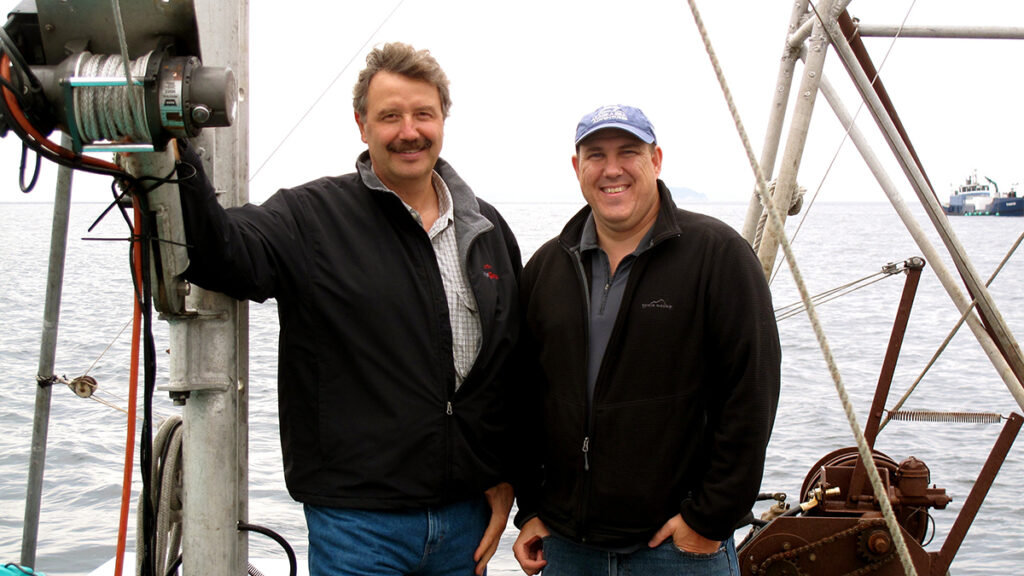
What are some ways we can eat more fish?
I think a lot of folks are intimidated at the fish counter: What do I buy? What if it's bad? How do I cook it? Don't be intimidated by a good piece of fish — it's really simple to cook. It cooks fast: a little seasoning, a little oil. Don't overcook it, and you're ready to go.
People also don't want their house smelling of fish.
Typically, if you get a smell, that means you've probably overcooked it a bit or you've cooked it a little too hot. Fish is typically pretty delicate. You don't need to cook it like a steak, right? You have to treat it nicely.
How do you like to prepare your fish?
We'll take a couple of the sockeye portions, put on a little olive oil and some lemon pepper, and then put it on the grill, or in a pan or in the oven, and it's ready in a few minutes.
How old were you when you first started eating fish?
My dad was a commercial fisherman, so I started going out on fishing boats in Alaska when I was 7 or 8 years old. I've been eating fish for a long time.
For how long were you a commercial fisherman?
I started getting paid to work on boats in the summertime in Alaska when I was 12, 13 years old. When I was 17, I started running my own boat in Alaska, fishing for sockeye salmon up in Bristol Bay. It was a good way to put myself through college and beyond. I ran that boat in the summer for just over 20 years.
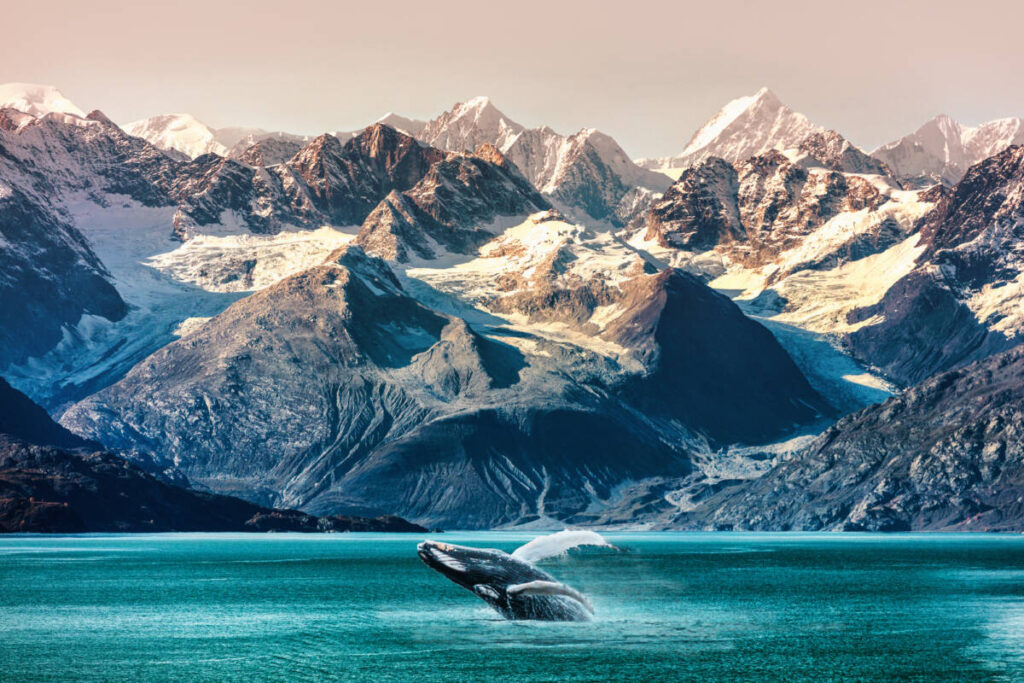
What fish deserves a little more respect?
The fish that gets overlooked is the sablefish, also known as black cod. It's a really terrific fish. Sablefish has a lot of oils, so it has a very rich taste. It's similar in many ways to a Chilean sea bass.
Also, sardines. They're really, really delicious. If you've ever had a grilled sardine in Portugal, it's just a fantastic meal.
Vital Choice has been selling high-quality tinned fish for a long time and now it's the "in" thing to eat. What are your thoughts on that?
Well, I think it's great! And, of course, talk about convenient. They're right in your pantry.
I did the math, and Vital Choice has sold over 10 million cans of fish. We've sourced a lot, we've sampled a lot, and if you sell a high-quality product, people just keep coming back. And some of these new tin fish startups are good to add some visibility because it's a great product.
Describe what it's like witnessing a salmon run.
It's unbelievable. In Bristol Bay is one of the most dramatic salmon runs. When you're out, you're in a little boat off the edge of the river mouth. Those fish are just swimming by, and there's literally millions of them. When the timing is right, you get a lot of fish in your net. But just to see the fish go by, it's a biological wonder.
And how about when a bear just grabs one out of the water?
There are some places where you can go and watch that. You know the iconic picture when they're on the waterfall and the fish are jumping up the waterfall and the bear catches it in his mouth — it's pretty amazing.
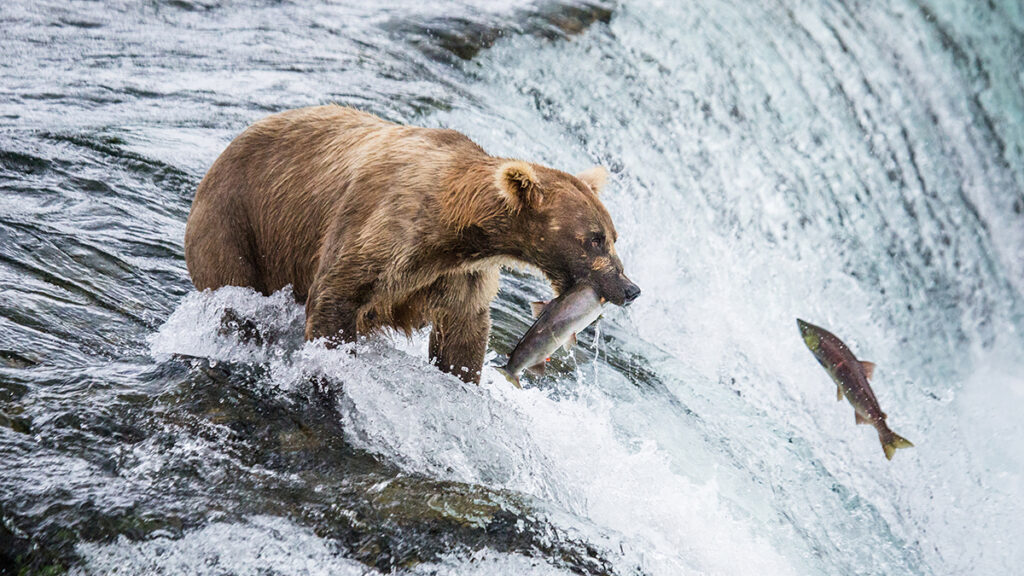
Vital Choice now sells other animal proteins, such as pasture-raised pork and grass-fed beef. What's your take on meat with feet?
What we found is that as our customer base has grown, we've acknowledged that people don't just eat fish. So, if they're going to eat something else, let's offer the best possible choice for them in line with the values of Vital Choice. We've worked with beef and pork producers that are humanely raising the animals. Those pigs are never in a box; they're pasture-raised and fed from organic food.
There's an ick factor with a lot of industrial-raised protein, so we wanted to offer people an alternative. Here, have your beef, but get it from a place where they're not treating the animals poorly.
On a large scale, do you think that's something this country can do?
I hope so, but I don't know if you have people who recognize that importance now, and then you offer them a path; hopefully, it'll catch fire.
You can't start by fixing the big thing. Medium-sized farms will adopt some of these practices. Sometimes you have to start with a small thing and make it grow.
Besides for fishing and the fish you can eat, what else can you say about Alaska?
It's a beautiful place. It's big, it's raw. I love the people up there — they're resilient and generous. Try to experience Alaska outside the cruise boat gift shop or bus tour because, with a little sense of adventure, you can have just unbelievable memories.

